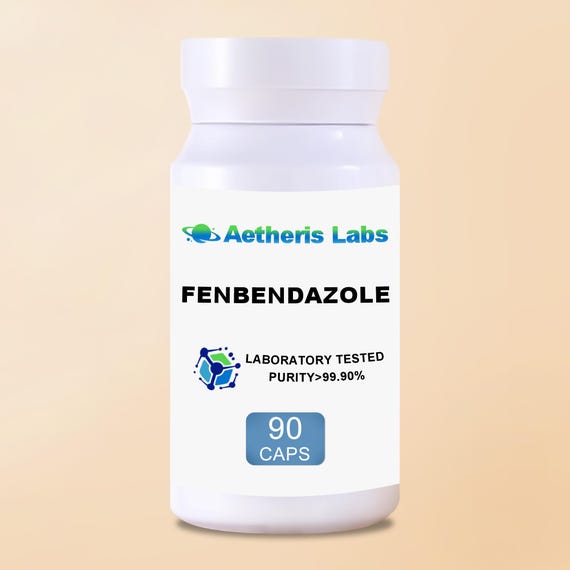fenbendazole: How It Works in Animals
Wiki Article
Understanding the Perks and Uses of Fenbendazole in Vet Medicine
Fenbendazole has developed itself as a vital anthelmintic in vet medication. Its capacity to target different parasitical infections makes it a valuable tool for vets. The drug's mechanism disrupts essential mobile procedures in bloodsuckers, bring about effective treatment outcomes. Nevertheless, its safety and security profile differs between types, requiring careful factor to consider in its use. Comprehending these characteristics can shed light on fenbendazole's broader implications in veterinary care and continuous study right into its potential beyond standard applicationsDevice of Activity of Fenbendazole

Common Parasitical Infections Treated With Fenbendazole
A selection of parasitic infections are effectively treated with fenbendazole, making it a flexible option in veterinary medication. This anthelmintic agent is especially effective versus nematodes, consisting of roundworms and hookworms, which commonly impact dogs and cats. It is likewise used for the therapy of cestodes, such as tapeworms, giving a broad spectrum of activity against both sorts of intestinal tract parasites. Additionally, fenbendazole is valuable in taking care of infections triggered by protozoa, specifically Giardia, which can cause intestinal distress in animals. Its effectiveness prolongs to treating particular lungworms in dogs and felines, dealing with breathing wellness problems connected to these bloodsuckers. In general, fenbendazole's capacity to target multiple parasitical varieties makes it a valuable device in veterinary method, making sure the health and wellness and wellness of pet dogs influenced by these usual infections.Safety and security and Efficacy in Different Animal Species
The safety and efficacy of fenbendazole differ among different animal varieties, emphasizing the relevance of species-specific factors to consider in vet medicine. In dogs, fenbendazole is usually well-tolerated and reliable versus a range of intestinal bloodsuckers, consisting of roundworms and hookworms. For felines, however, its use is much less typical and may need cautious application as a result of potential damaging reactions.In livestock, such as livestock and lamb, fenbendazole shows effectiveness against different endoparasites, adding to boosted health and wellness and performance. The pharmacokinetics and potential side impacts can differ markedly between species, necessitating cautious evaluation by veterinarians.
Horses additionally respond favorably to fenbendazole, particularly for treating strongyles and ascarids, though dosage and management paths should be customized to their one-of-a-kind physiology. Comprehending these differences is vital for enhancing therapy outcomes and ensuring pet welfare throughout varied types.
Management and Dosage Standards
Correct management and dosage guidelines are vital for making best use of the therapeutic impacts of fenbendazole while lessening possible adverse effects. The dosage commonly varies relying on the varieties being treated, the particular problem, and the solution of fenbendazole made use of. fenbendazole 444. For dogs and pet cats, a common dose is 50 mg/kg body weight, provided as soon as daily for three successive days, yet veterinarians might change this based upon individual health and wellness analysesIt is necessary to carry out fenbendazole with food to improve absorption and minimize stomach fenbendazole 222 trouble. The medicine is available in various forms, consisting of granules and paste, enabling adaptable management alternatives. Checking the pet's reaction during and after treatment is suggested to validate effectiveness and safety. In addition, veterinary guidance is essential to figure out the suitable period of therapy based upon the kind of parasitical infection being resolved, assuring suitable results for the pet's wellness.
Future Point Of Views and Research on Fenbendazole
Study on fenbendazole remains to evolve, focusing on its possible applications past traditional antiparasitic uses. Recent studies have discovered its efficiency in treating different types of cancer cells, specifically in vet oncology. Preliminary data recommend that fenbendazole may prevent the development of growth cells and boost the impacts of various other chemotherapeutic representatives.Researchers are investigating its role in managing gastrointestinal disorders in animals, highlighting its anti-inflammatory residential or commercial properties. The adaptability of fenbendazole for various species increases questions concerning its safety profiles and perfect dosing programs in diverse populations.
As interest expands, there is a requirement for thorough medical trials to establish evidence-based guidelines for these unique applications. Future research may also examine the systems behind fenbendazole's effects, possibly leading the means for innovative therapeutic techniques in vet medication. The continuous exploration of fenbendazole might considerably enhance therapy alternatives for various vet conditions.

Regularly Asked Inquiries
Is Fenbendazole Safe for Pregnant Animals?
The safety and security of fenbendazole for expectant animals stays uncertain. While some research studies suggest very little risk, vets commonly advise care and commonly discourage its use throughout pregnancy unless the advantages plainly surpass prospective risks.Can Fenbendazole Be Utilized in Animals?
Fenbendazole is commonly made use of in animals to treat different parasitical infections. fenbendazole 444. Its efficiency versus stomach worms makes it a valuable anthelmintic, adding to enhanced wellness and performance in pets increased for food and fiberWhat Are the Adverse Effects of Fenbendazole?

The adverse effects of fenbendazole may consist of stomach disturbances, lethargy, and sensitive reactions. In unusual cases, much more severe reactions could occur, requiring cautious surveillance and consultation with a vet throughout treatment.
Exactly How Does Fenbendazole Contrast to Other Dewormers?
Fenbendazole supplies broad-spectrum efficacy versus various bloodsuckers, often comparing positively to other dewormers. Its special system targets different life phases, making it effective, while typically presenting a favorable safety account compared to alternatives available on the marketplace.Can Fenbendazole Be Used for Dealing With Cancer in Animals?
The capacity of fenbendazole in treating cancer cells in pet dogs has gathered rate of interest. Initial studies recommend it may hinder cancer cell growth, however additionally study is essential to verify its efficiency and safety in vet oncology.Report this wiki page